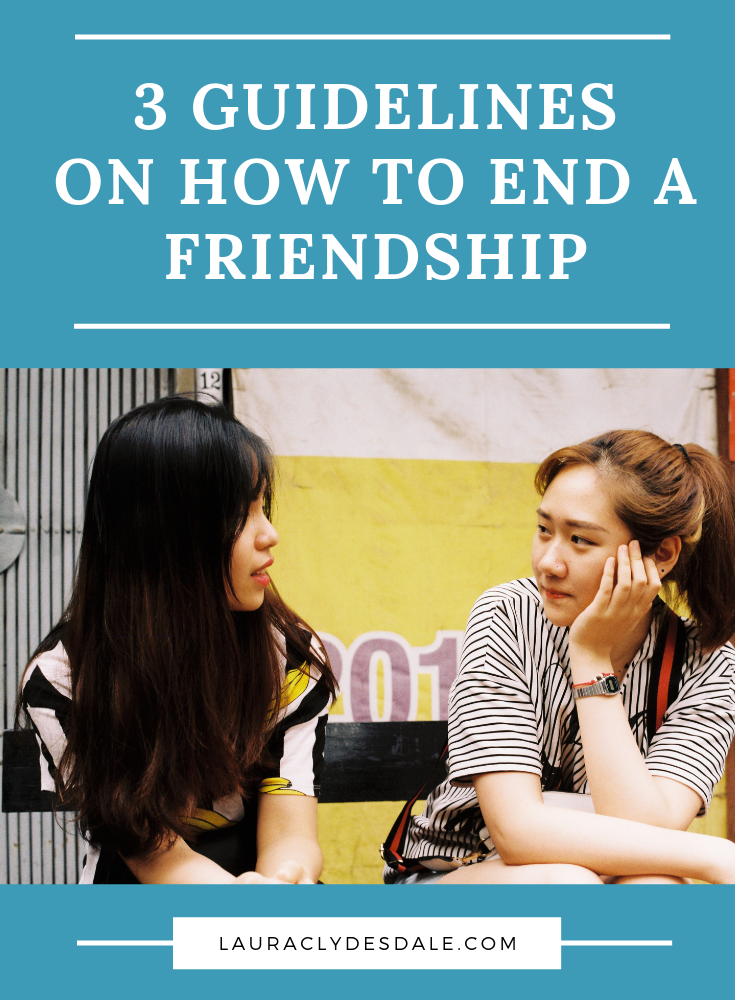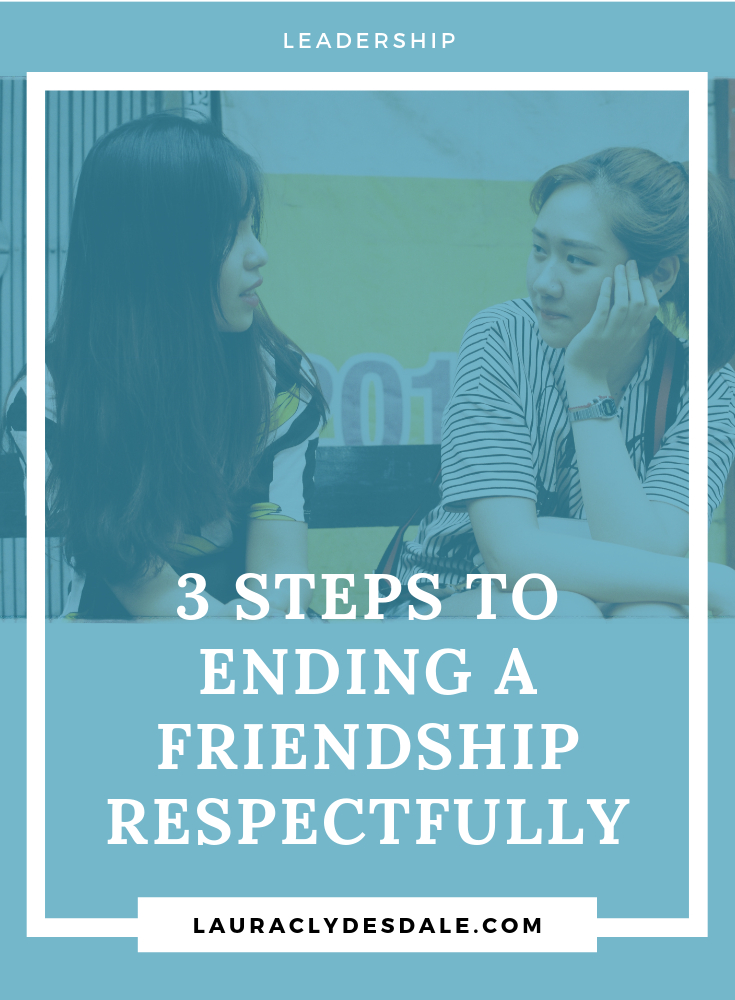My niece was distraught. She told me at our summer family reunion that a friend she believed was a really close friend had turned on her.
Her friend had gotten in trouble. She had done something pretty wrong, in fact, and my niece apparently wasn’t sympathetic enough. Actually, she was disappointed in her friend and had let her know - not in a cruel way but not in the “it’s TOTALLY not your fault” way her friend was hoping for. Now the friend had turned on her and was sending all sorts of terrible texts. My niece had tried many times to talk to her to clear things up, but the friend just kept sending mean texts in response. She showed me some of them, and I was just as appalled as her. She was rightfully hurt.
I usually would recommend she have a difficult conversation with her to try to repair the rift. However, to my eyes, it appeared a different strategy was warranted, so I asked her, “Do you think this person is a ‘worth-it’ friend? A ‘forever’ friend?”
“I hadn’t thought of that,” she replied. “Um, maybe not.”
“I don’t think so either, so…temporarily block her,” I said.
“What?!” she replied, her tears immediately stopping and her face getting suddenly serious. “What do you mean?”
I told her, “Sometimes when you try and try to resolve something with a person, and you get nowhere, you need to walk away. This also applies to bullying, which appears to be happening here. You need to feel like you are getting some control back. Usually, you will tell someone you need to take a break from the argument and literally walk away, but you guys are doing this electronically. She keeps texting you mean messages relentlessly and not responding to your pleas of talking this through. You can’t catch your breath or get clarity on what is going on. So, block her phone number. It will give you space to figure out next steps, she’ll just think you aren’t responding, and you can always unblock it later.”
Of course, I don’t mean to condone walking away whenever anything gets hard. In fact, girls frequently tend to avoid difficult conversations, and I am a big advocate of having a well-planned-out, face-to-face conversation as a way to get to the bottom of the conflict which, ironically, ends up strengthening the relationship.
My gut told me this was something different. Obviously, my niece was mourning the deterioration in discourse with her ‘close’ friend. However, she was addressing the problem as a close friend who was being mean to her and not recognizing that the friendship itself probably had changed.
All of us have a spectrum of friendships, and these friendships change and morph throughout our lives. As adults, this seems like a ‘Duh’ sentence. We all know this, right?
But in my experience working with girls, my daughter, and talking to many parents, girls (especially young girls) don’t intuitively recognize that A) there is a spectrum of friendships, B) friendships are rarely static and C) not everyone is a friend. Girls tend to think this way because we are raised to be ‘nice.’ If we are to be perceived as always a nice girl, you try to forge a positive relationship with everyone and then do everything you can to keep that friendship humming along in as non-confrontational a way as possible.
When my daughter was little, she struggled a lot with this concept. For instance, she was particularly hurt when a coach or teacher gave her negative feedback on her performance. This never feels great at any age, but she was simply devastated, taking it personally instead of as constructive feedback. Teachers and coaches are NOT friends. The kind of feedback one gets from them should be taken in a different context from the input you get from a close friend. A red flag should go up if your daughter comes back with a poor test score, and she exclaims, “My teacher hates me!”
When my daughter was in third grade, she was having an on-again-off-again battle with her “best friend.” She would come home an absolute mess as she explained how her friend had ignored her all day. Then the next day they would be thick as thieves again and asking for a play-date. The see-sawing was exhausting to deal with as a parent. I told her that she needed to have at least three friends because “one might be sick at home, and one might be playing with someone else.”
It worked so well, it became my mantra at the beginning of each school year. Last year, my daughter ribbed me with my old line when I asked her if she was nervous about starting high school. She said, “don’t worry mom, I’ll work on making at least three friends in case one is sick or playing with someone else.”
Friendships not being static is probably the hardest lesson to learn at any age. Ending friendships is brutal no matter if you are doing the breaking up or being broken up with. However, it is a necessary and normal part of life. But how do we do this correctly and with respect?
The Girls Leadership Institute has an outstanding video on how to end a friendship with respect and confidence. Their advice is so on point that if you can’t find time to watch the three-minute video, I’ve quoted their main points here:
“It helps to see ending a friendship as part of a continuum of healthy boundary-setting skills that girls should be using on a regular basis. We set a boundary when we want to set a limit – either on our own behavior or others’. Boundary setting is key for girls’ emotional health because it allows girls to maintain control, autonomy, and safety in their relationships. When girls set their own boundaries, they can decide when and how to be authentic with someone else. Ironically, boundaries are what makes it easier for us to get close to others.”
“Without boundaries, we often become resentful. We lose control over what happens in our relationships, making it harder for us to be compassionate, grateful, and happy in them.”
“We recommend following three rules when you end a friendship.”
Treat the other person how you’d want to be treated. If you like your truth straight, and hate it when other girls drop hints about what’s really happening, you know what to do here. It will help to practice beforehand. Consider writing a letter or script that you could practice beforehand with a trusted adult. If you want to send a letter, that’s okay, but we suggest doing it in writing. By now, we all know what can happen on social media when something falls into the wrong hands.
Keep the decision permanent – no takebacks. Ending a friendship isn’t temporary. It’s an ending. If you’re not 100% sure that you’re done with this person, try a friend vacation instead. If you are likely to see this person outside of school on a regular basis (think church or synagogue, or family dinners if your parents are friends), think through how you’ll manage that. You will have to be polite and civil, but you won’t be able to lean on that person like you probably used to. It’s not okay to be pretend- or temporary-friends based on where you are.
Keep the decision to yourself. If you talk about it too much with your friends, it’ll get back to the other girl, and she’ll feel even worse. We know you need to vent about this, but turning to the friends you share in common is just not kind. Explain what happened briefly to your friends, without the gory detail, and let them know you’re going to be cool towards her when you see her. If you need to talk, lean on the friends who don’t know her, or a trusted adult.
“When all is said and done, the classiest, coolest thing a girl can do is continue to smile at, make eye contact with, and say hello to an ex-friend. She can even make small talk if it’s not confusing for anyone. This girl doesn’t have to be “dead to you.” When girls learn how to end a relationship with grace, it gives them the confidence and skills to choose the healthy relationships they want.”
- Girls Leadership Institute
Sure my niece could have taken her friend’s side and pretended not to be disturbed by what she had done, however, had she done that, my niece would be denying her own boundaries. Deep down her friend’s actions put her values in stark contrast with my niece’s.
We lose friends all the time throughout life as well as add new ones. Usually, it is through a natural drifting apart rather than any special fireworks. But it’s important to occasionally ask yourself the question: What do I need in a friend? What makes a good friend to me?
This way, when a conflict arises with someone, you can share your needs with confidence. Probably, your friend will agree, and it will all work out. Occasionally, it doesn’t. And when it doesn’t, we can feel less like a victim and more in control of the decision to make a break…or at the very least walking away for a bit and catching our breath.
My niece picked up her phone and blocked the number.





